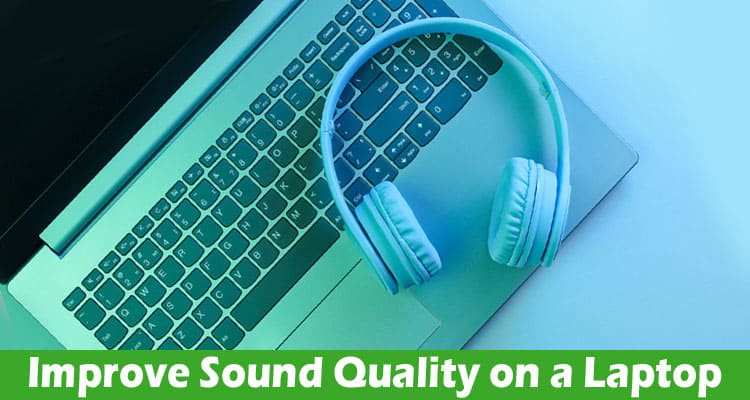Low-quality audio ruins the experiences you have when enjoying media on your laptop. Whether you’re listening to music or watching a movie, you want your device to project high-quality audio to create a fully immersive experience. Over time, you may find that your laptop speakers begin to sound dull and faded. Fortunately, you can use a few techniques to improve audio output from any laptop.
Laptops that can project rich, clear audio do an excellent job of acting as a media center. People use their laptops daily for music, attending video conferences, and enjoying media. Choppy audio and muddled noises will impact your user experience. If you notice the audio quality from your laptop has changed lately, it’s crucial to try a few troubleshooting steps to resolve the issue.
Check out these strategies to improve sound quality on a laptop.
1. Change audio settings
The audio settings in the control panel will allow you to adjust the sound quality on a laptop. In the sound section of the Windows 11 control panel, you can adjust audio settings for your internal speakers or headphones. You can adjust sound levels through the audio settings, overlay audio with enhancements, or change the sample rate and bit depth.
You can also activate the Windows 11 spatial sound format, which uses Sonic and Dolby Atmos technology to enhance audio. If you’re experiencing problems with the sounds coming from your laptop, the control panel is a good place to start troubleshooting.
2. Update your audio drivers
If you notice the audio quality from your laptop is randomly fluctuating, you may need to update your audio drivers. Updates for your drivers can contain new features and capabilities that enhance audio output. These drivers are crucial for bridging the audio system in your laptop with your speakers and sound cards.
By typing “device manager” in the Windows start menu, you can manually check for updates for your drivers. Under the Audio Input categories, right-click on the audio driver and click update driver. If automatic updates for your drivers fail, you can use this technique to keep sound quality consistent.
3. Use your laptop in different positions
One of the best ways to improve sound quality on a laptop is to experiment with different positions. If your laptop has speakers located on the bottom, you’ll muffle the audio when using the device in bed or on your lap. Instead, try to elevate your laptop to produce audio with more clarity.
Using the ASUS ROG Flow X13, you can put the laptop into stand mode, which exposes the speakers and improves sound quality. When the speakers are exposed, your laptop can project sounds more clearly throughout the room. Try finding a position where the speakers can generate the most clarity.
4. Experiment with different equalizer modes
Humans can detect a broad range of sounds. Equalizers act as an audio filter that lowers specific frequencies while boosting others. The result is a harmonious blend of frequencies that adds increased depth to the audio coming from your laptop.
You can adjust the equalizer at the operating system level by going into settings in Windows 11. When using applications like iTunes, Spotify, or Windows Media Player, you can use the in-application settings to adjust the equalizer.
Laptops like the ASUS TUF FX506 allow you to experiment with equalizer pre-sets optimized for gaming, movies, sports, or music. By playing around with the equalizer settings, you can make dialogue stand out while watching movies. You can also enhance the richness of your music by boosting the bass frequencies.
5. Use application settings to enhance audio
Another trick is to adjust audio settings within the application you’re using. If you’re playing a video game, changing the in-game audio settings will help you get better performance. When watching movies or listening to music, use the media player audio settings to enhance the audio output. Adjusting the settings from the application layer will help your laptop better optimize audio output.
6. Try external speakers
It may be worth investing in external speakers if you have an older laptop. With modern external speakers, you can connect your laptop via Bluetooth. It is an excellent way to improve the overall audio quality you experience. Using Bluetooth connections, you won’t have to deal with cumbersome wires attached to your laptop.
External speakers are much larger than the ones on your laptop. They will allow you to experience deep, resonating audio when watching movies. External speakers are also great for enjoying media with multiple people in the room. With these speakers, you can better use the audio from your laptop to create ambiance for an immersive experience.


